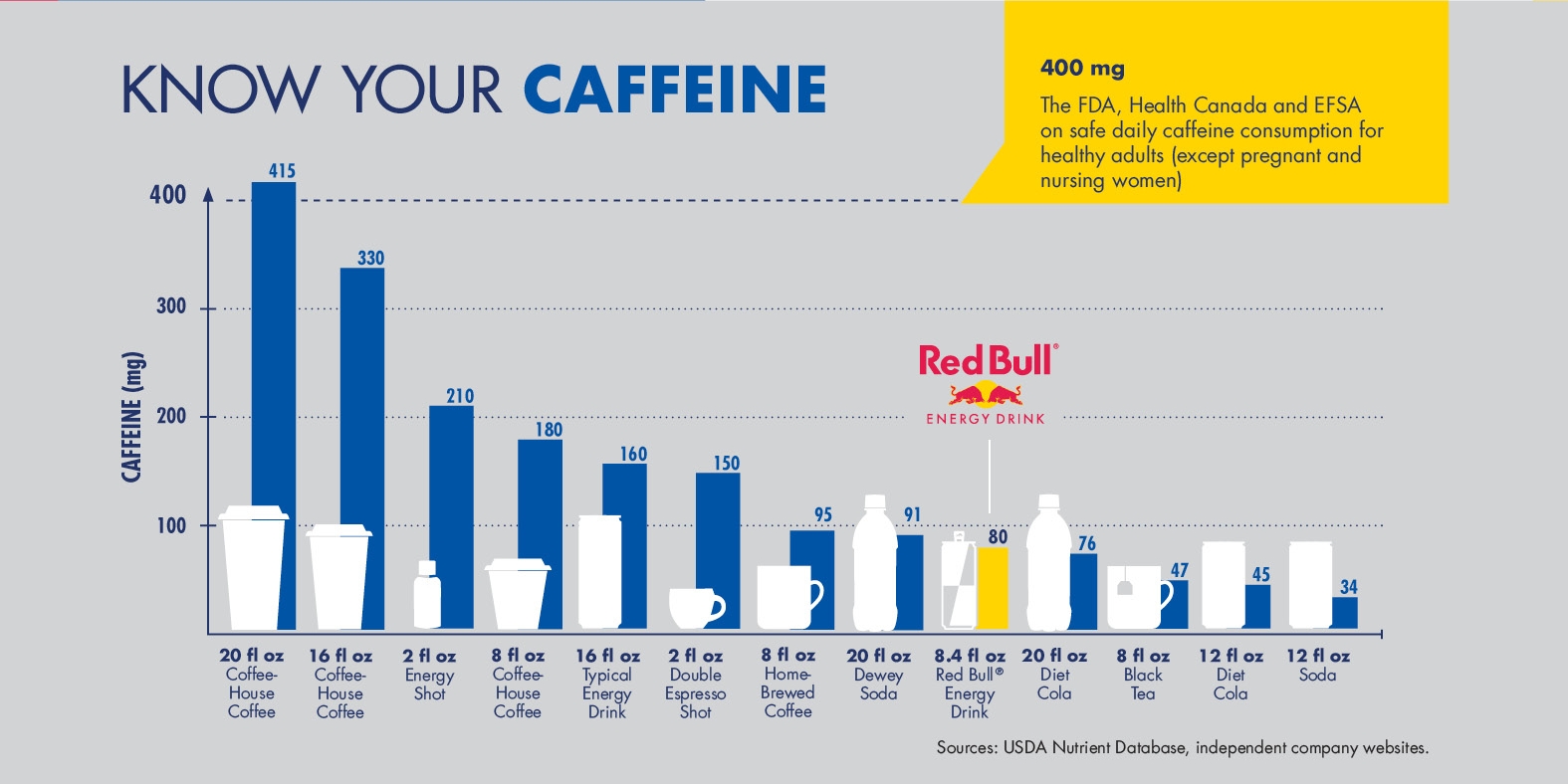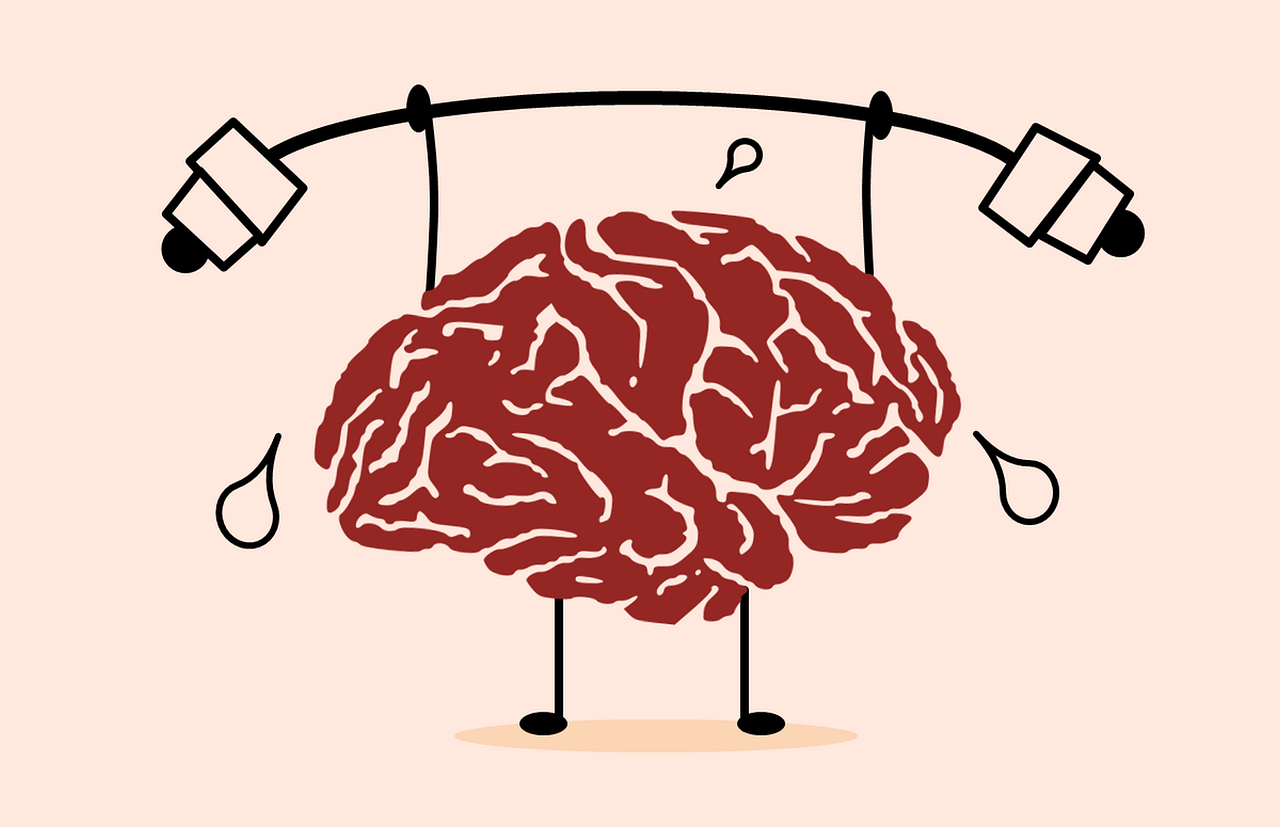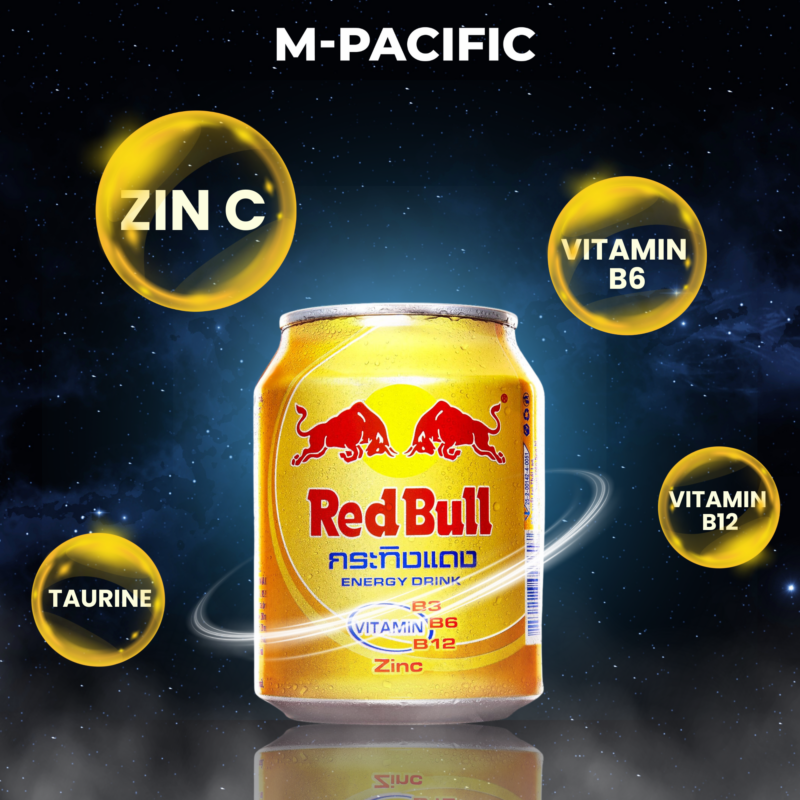Red Bull, a popular energy drink, is known for its ability to provide a quick energy boost. A key ingredient contributing to this effect is caffeine. But just how much caffeine is packed into a can of Red Bull? Let’s dive into the details.
Introduction About Red Bull

Red Bull is a globally recognized Energy Drink that has revolutionized the beverage industry. Launched in Austria in 1987, it quickly gained popularity for its unique blend of ingredients and its ability to provide a quick energy boost. The iconic yellow and red can, adorned with the distinctive Red Bull logo, has become synonymous with youth culture, extreme sports, and high-performance lifestyles.
Red Bull has successfully positioned itself as a lifestyle choice, associating itself with adrenaline-pumping activities and events. This approach has created a strong brand identity and a loyal customer base.
With its potent combination of taurine, and other ingredients, Red Bull has captured the attention of consumers seeking a quick pick-me-up.
In the following sections, we will delve deeper into the world of Red Bull, exploring its ingredients, especially the amount of Caffeine in Redbull.
What Is Caffeine?
/https://cms-prod.s3-sgn09.fptcloud.com/caffeine_la_gi_nhung_cong_dung_cua_caffeine_ma_co_the_ban_chua_biet_2_1884cb2685.jpg)
Caffeine is a naturally occurring stimulant found in several plants, including coffee beans, tea leaves, cocoa beans, and guarana berries. It belongs to a class of compounds called methylxanthines.
When consumed, caffeine primarily affects the central nervous system. It works by blocking adenosine receptors, a neurotransmitter that promotes sleepiness. By inhibiting adenosine, increases alertness, focus, and energy levels.
Because of the benefits that Caffeine bring up, Caffeine also has in Redbull and become one of the most crucial ingredients. In this article, M-Pacific will review how much Caffeine has in Redbull.
How many Caffeine has in Redbull?

One 250-ml can of Red Bull Energy Drink contains 80 mg of caffeine. To make is easier for the reader to imagine, M-Pacicific brings up some 250ml beverages to compare the Caffeine content:
- Filter Coffee 113mg per 250ml
- Instant Coffee 79 mg per 250 ml
- Cocoa Beverage 6 mg per 250 ml
- Black Tea 57 mg per 250 ml
- Cola 28 mg per 250 ml
Overall, Red Bull Energy Drink contains a similar amount of Caffeine to an average cup of coffee. Red Bull provides a moderate amount of caffeine, placing it between filter coffee and black tea. If you’re looking for a drink to boost your alertness and focus, Red Bull might be a suitable choice.
Factors Affecting Caffeine Intake
While the standard can of Red Bull contains 80mg of caffeine, there are a few factors that can influence caffeine consumption:
- Red Bull Editions: Some Red Bull editions, like Red Bull Sugarfree, might have slightly different caffeine content.
- Can Size: Larger cans of Red Bull will naturally contain more caffeine.
- Consumption Frequency: Consuming multiple Red Bull cans in a short period can significantly increase your caffeine intake.
Caffeine and Energy Drinks: A Closer Look
Energy drinks, including Red Bull, are often consumed for their stimulating effects. Caffeine is a primary contributor to this energy boost. However, it’s crucial to understand that caffeine is a stimulant and can have both positive and negative effects on the body.
While Red Bull is often associated with its stimulating effects, the caffeine content plays a significant role in providing several potential benefits:
1. Enhanced Mental Performance
- Increased alertness and focus: Caffeine acts as a central nervous system stimulant, helping to improve concentration and reduce feelings of fatigue.
- Enhanced cognitive function: Some studies suggest that caffeine can improve memory, reaction time, and overall cognitive performance.

2. Boosted Physical Performance
- Increased endurance: Caffeine can help athletes and individuals engaged in physical activity by delaying the onset of fatigue and increasing endurance.
- Improved athletic performance: By enhancing alertness and focus, caffeine can contribute to better performance in sports and other physical activities.
3. Potential Health Benefits
- Antioxidant properties: While the antioxidant content in Red Bull may be lower than in some other beverages, the caffeine it contains does possess antioxidant properties, which can help protect cells from damage.
It’s crucial to note that these potential benefits are primarily attributed to the Caffeine content in Red Bull. The drink also contains other ingredients, such as taurine and sugars, which may contribute to its overall effects. Additionally, individual responses to caffeine can vary, and excessive consumption can lead to negative side effects.
While caffeine in Red Bull offers numerous benefits such as increased alertness, improved focus, and enhanced physical performance, excessive consumption can lead to undesirable side effects.
Drinking too much Red Bull can result in various issues including insomnia, anxiety, increased blood pressure, digestive disturbances, and even heart palpitations. Excessive caffeine intake from Red Bull can also lead to dependency, making it difficult to quit.
To enjoy the benefits of Red Bull without experiencing negative consequences, you should:
- Limit caffeine intake: Do not consume more than 400mg of caffeine per day.
- Consume in the morning: Drink Red Bull in the morning to avoid disrupting sleep.
- Combine with a healthy diet: Drink plenty of water and eat fiber-rich foods to balance caffeine intake.
- Consult a healthcare professional: If you have any underlying health conditions, consult your doctor before consuming Red Bull.
In conclusion, Red Bull can be an effective energy drink, but it’s essential to consume it responsibly. Consider your individual needs and always listen to your body.

